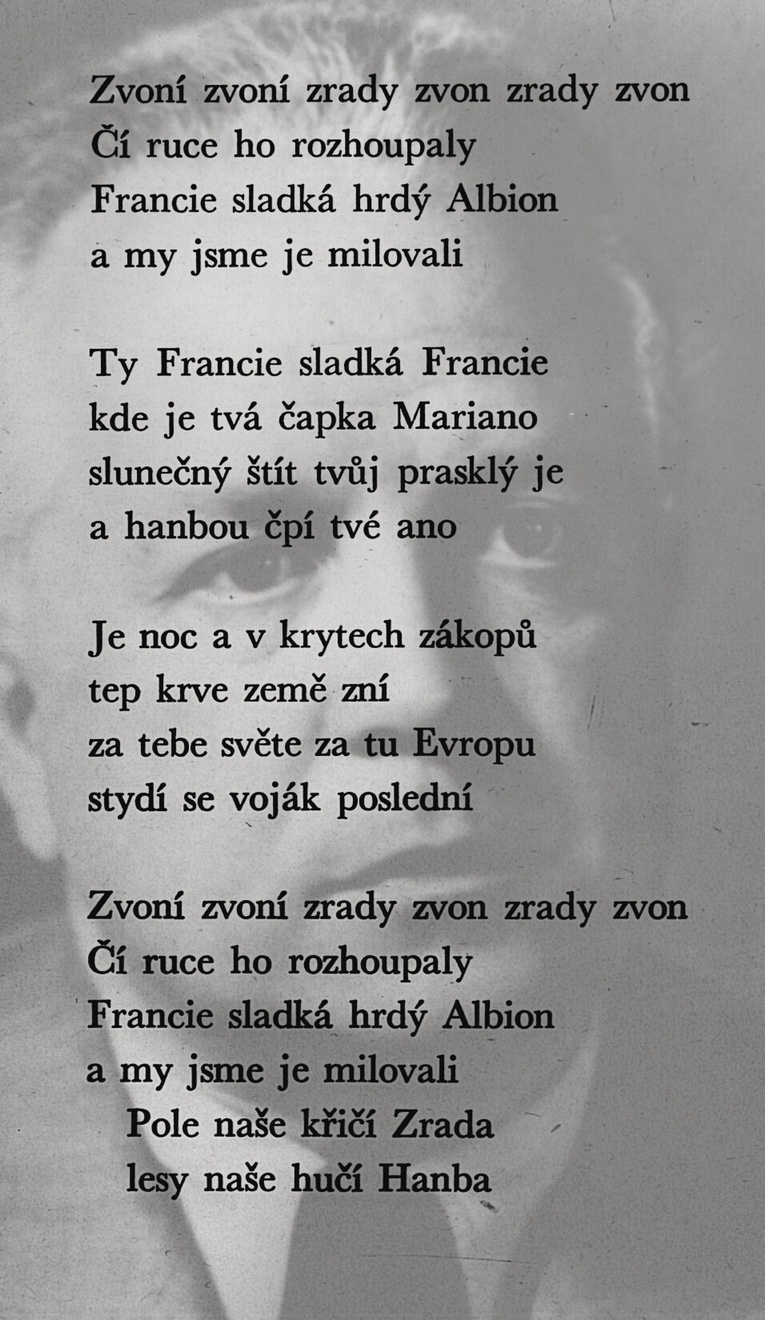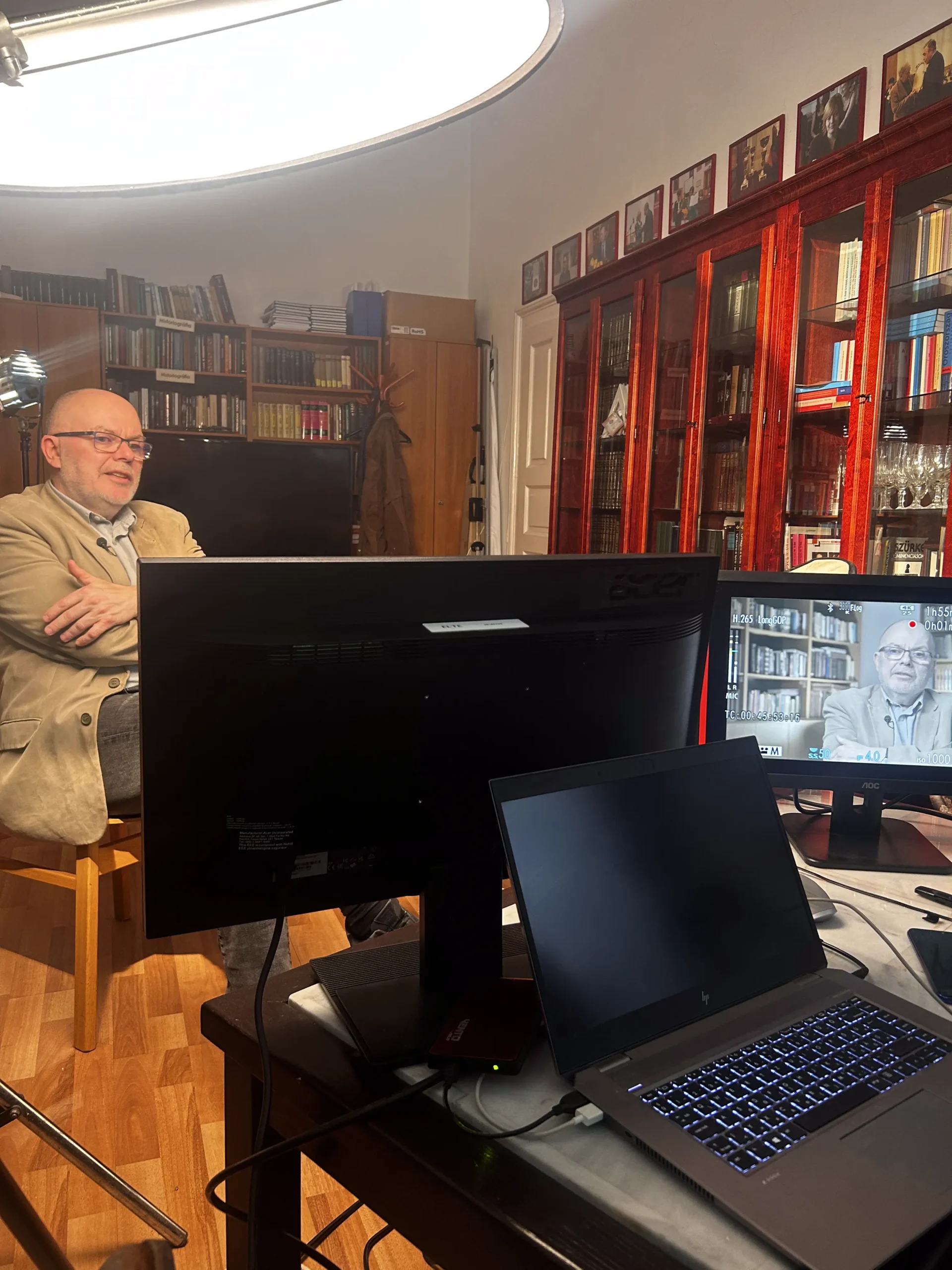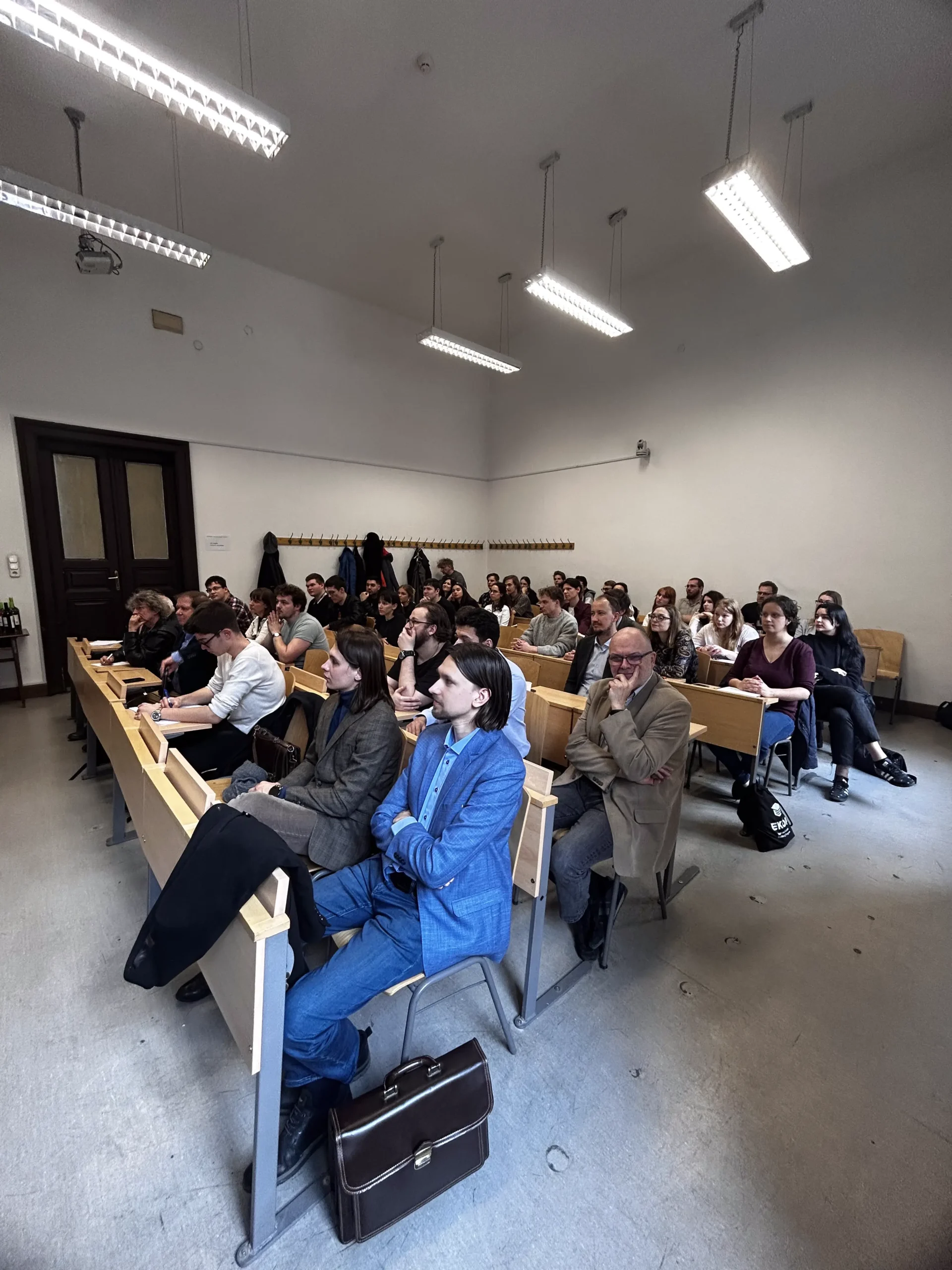The Myth of Munich Betrayal – Praha, Memorial plaque of Františka Halase
Fact of the Czech figure „Munich Agreement”
Part of the „The myth of national disaster” topic
„The bell of betrayal is ringing,” the Czech poet declaimed in the autumn of 1938 about the outcome of the Munich Conference, and when asked who was ringing the bell, he replied: „Sweet France, Proud Albion / And we loved them”. In several verses, the poet expressed the bad feelings of the Czech people. The democratic politicians of France and Great Britain sacrificed Czechoslovakia to Nazi Germany in the name of peace, which – as it turned out in a year – couldn’t be maintained in the face of the German dictator’s imperial plans.
Today, the thesis of French and British treachery is questioned, but the idea that „the West” decided „without us” still survives in the collective Czech memory. In the aftermath of the Second World War, the Munich trauma was exploited by the propaganda of the ruling Communist Party, which inaccurately emphasised that the Soviet Union was the only state that was prepared to enter the war in defence of Czechoslovakia. A feature-length film entitled “Days of Betrayal” (1973) was produced, which offered a regime interpretation of the events of September 1938.
In the present day, the reference to the „Munich betrayal” has become primarily a memento of a questionable decision and a moral imperative to ensure that such a situation is never repeated.





